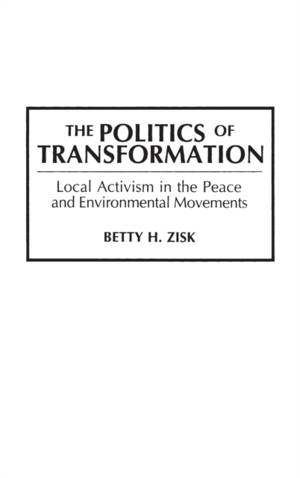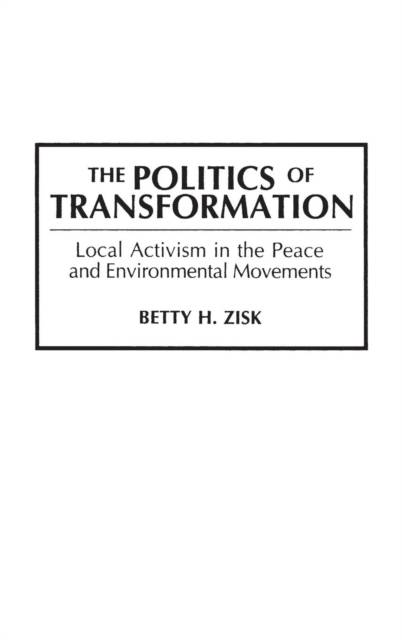
- Retrait gratuit dans votre magasin Club
- 7.000.000 titres dans notre catalogue
- Payer en toute sécurité
- Toujours un magasin près de chez vous
- Retrait gratuit dans votre magasin Club
- 7.000.0000 titres dans notre catalogue
- Payer en toute sécurité
- Toujours un magasin près de chez vous
Description
This book is a study of local grassroots activism in two major political areas, the peace and environmental movements, over a period of five years. Interviews with leaders of 166 different groups in five states (Massachusetts, Maine, New Hampshire, California, and Oregon), supplemented by personal observation and participation in several of those groups are the foundations of this analysis. The major concerns are the components of group and movement successes, both short-run and long-run, and activist group adaptations to change in the larger social and political world in light of political upheaval in Eastern Europe, the Gulf War, and several environmental crises that occurred during the period in question. Finally, Zisk focuses on the growing convergence (and barriers to convergence) of the movements.
After examining short run accomplishments, Zisk concludes that most of the groups in both movements are faring poorly: few of their concrete goals are achieved, media attention is poor, and membership growth is problematic. For both movements, the transformational wings (those that press for basic changes, use consensus decision making, have few paid staff members) are not doing so well as the incremental wings (those seeking limited goals, using traditional decision techniques, employing larger staffs). This book should be of interest to students and teachers of political science and sociology.Spécifications
Parties prenantes
- Auteur(s) :
- Editeur:
Contenu
- Nombre de pages :
- 280
- Langue:
- Anglais
- Collection :
Caractéristiques
- EAN:
- 9780275940577
- Date de parution :
- 30-10-92
- Format:
- Livre relié
- Format numérique:
- Genaaid
- Dimensions :
- 163 mm x 243 mm
- Poids :
- 571 g

Les avis
Nous publions uniquement les avis qui respectent les conditions requises. Consultez nos conditions pour les avis.






